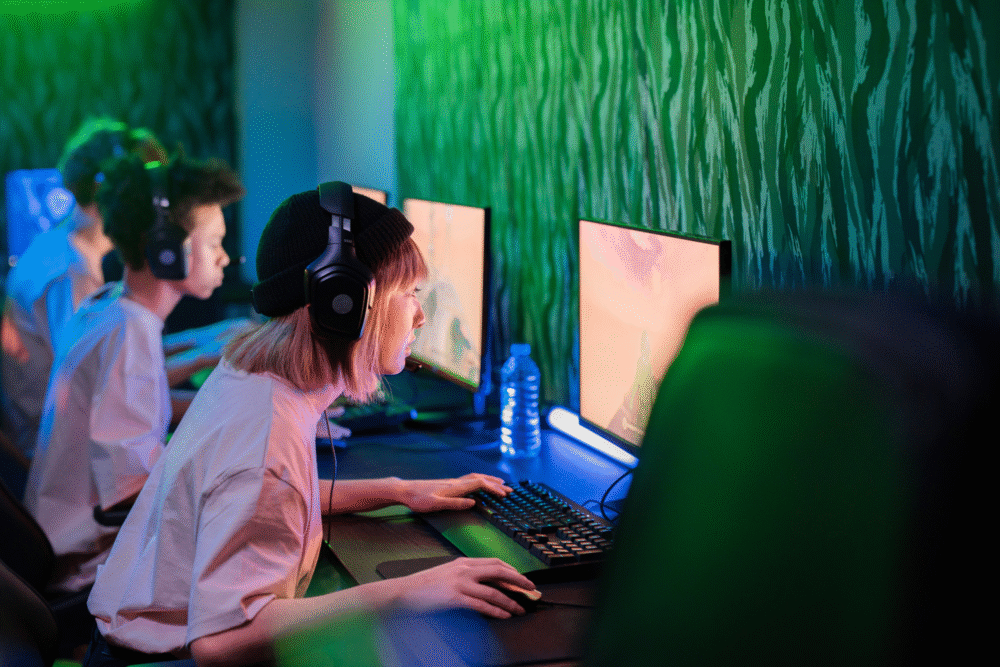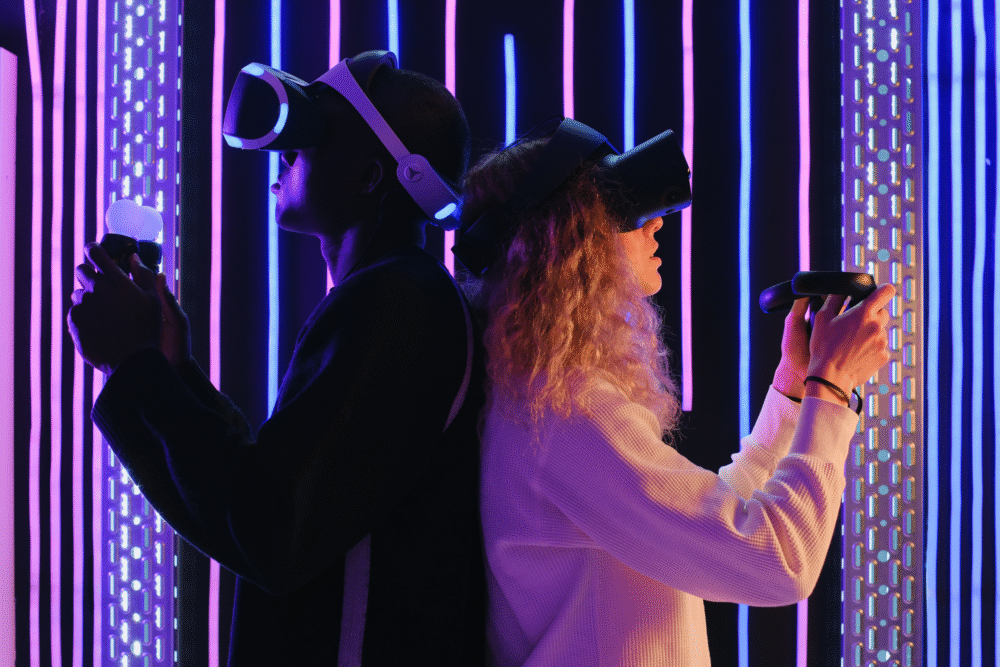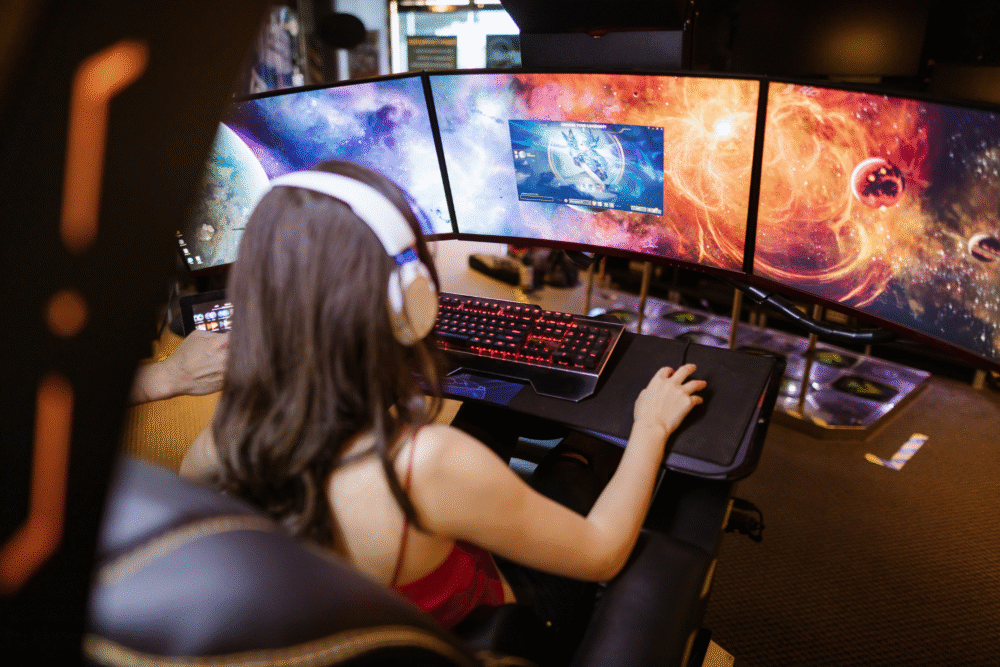The revolution is being gamified.

Once relegated to the realm of a niche hobby, gaming has emerged as a formidable cultural force, its influence extending far beyond the confines of a screen. We’re witnessing a revolution where the principles of gameplay—strategy, problem-solving, and community—are being applied to real-world challenges. This shift is redefining how we learn, work, and connect with one another, proving that gaming is far more than a simple pastime; it’s a powerful tool for change.
From the virtual to the tangible, the lines are blurring, and the skills honed in digital worlds are now yielding tangible results in our own. This is the new frontier, and the game has only just begun.
1. Gaming is revolutionizing education and learning.

The immersive and interactive nature of video games is being harnessed to create engaging educational tools. By turning learning into a game, students are more motivated to participate and retain information. Concepts that were once difficult to grasp, from complex scientific principles to historical events, become more accessible and enjoyable when presented in a dynamic, game-like format.
Gamified learning fosters problem-solving skills, critical thinking, and collaboration in a way that traditional methods often can’t. It encourages students to experiment and learn from their mistakes in a low-stakes environment, preparing them for real-world challenges in a more effective and exciting way.
2. It’s creating new pathways for professional training.

Industries are increasingly using gaming simulations to train employees in a safe and controlled environment. Surgeons can practice complex procedures in a virtual operating room, pilots can train for emergency situations in flight simulators, and military personnel can prepare for high-stakes scenarios. These simulations allow for repetition and skill mastery without the risk of real-world consequences.
This type of training is not only safer but also more cost-effective than traditional methods. It allows for detailed performance analysis and targeted feedback, ensuring that professionals are well-prepared for their jobs. The use of gaming in training is becoming a standard practice across many sectors.
3. Games are a powerful tool for social change.

Many developers are creating games with a social conscience, addressing important issues like climate change, poverty, and human rights. These games allow players to experience the world from a different perspective, fostering empathy and encouraging them to take action. They can be incredibly effective in raising awareness and inspiring real-world change.
By engaging players on an emotional level, these games can create a lasting impact that goes beyond a simple news story or documentary. They provide a unique platform for advocacy, allowing players to become a part of the solution in a way that feels personal and empowering.
4. They’re becoming a new form of digital and social connection.

Video games have always been a way to connect with friends, but in the digital age, they’ve become a primary form of social interaction. Online multiplayer games create massive virtual communities where people can connect, collaborate, and form friendships with others from all over the world. These digital spaces are often just as important for social connection as physical ones.
This new form of social interaction is particularly important in a world where physical distance can be a barrier. Gaming offers a shared experience that transcends geography, allowing people to maintain relationships and build new ones in a fun and engaging way.
5. Gaming is advancing scientific research and data analysis.

Scientists are now using “citizen science” games to collect and analyze vast amounts of data. In these games, players are given small, digestible tasks that contribute to larger research projects, such as identifying proteins or mapping neurons. The collective effort of thousands of players can accomplish in a few hours what would take a supercomputer months to complete.
This gamified approach to research makes science more accessible to the public and accelerates the pace of discovery. It turns complex scientific problems into engaging puzzles, harnessing the power of human ingenuity and collaboration to solve some of the world’s most challenging questions.
6. The technology is driving innovation in other fields.

The cutting-edge technology developed for video games, from advanced graphics engines to virtual reality hardware, is being adopted by a wide range of industries. Architects use game engines to create realistic virtual walk-throughs of buildings, filmmakers use them for special effects, and retail stores use VR to create immersive shopping experiences.
This cross-pollination of technology is a testament to the innovation that drives the gaming industry. The constant push for more realistic graphics, faster processing, and more immersive experiences is yielding benefits that are felt across the entire technology landscape.
7. It’s revolutionizing mental and physical therapy.

Gaming is increasingly being used as a therapeutic tool for both mental and physical health. Virtual reality games are helping people with PTSD face their fears in a safe environment, while motion-controlled games are being used to help patients with physical rehabilitation. The engaging nature of games can make therapy more enjoyable and effective.
The interactive and customizable nature of games allows therapists to tailor treatments to a patient’s specific needs and track their progress in real-time. This can lead to better outcomes and a more personalized approach to care, proving that games can be a powerful force for healing.
